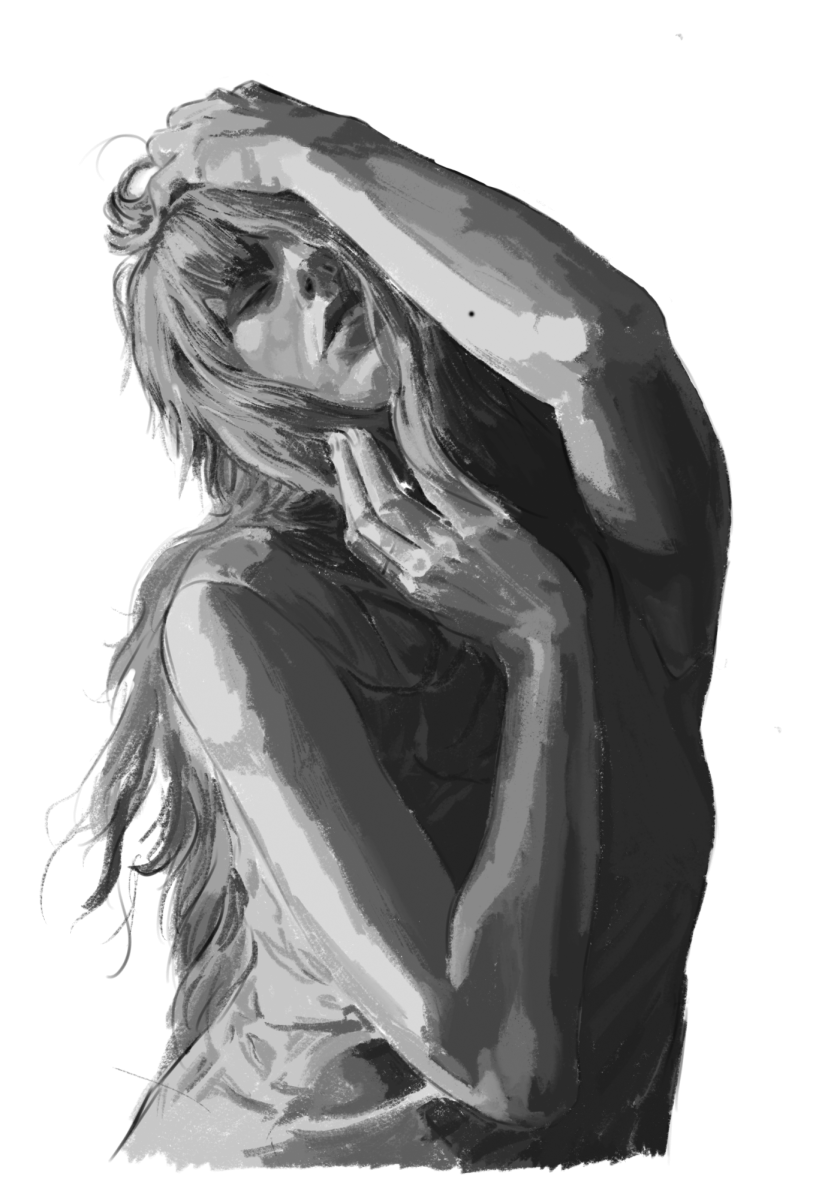Cultural phenomenon, victim, villainess, mini-economy and girl-next-door: over 15 albums and 18 years of music, Taylor Swift has been many things. For her 11th album (excluding re-records), “The Tortured Poet’s Department,” she assigns herself the title of tortured poet and reminds the world of the songwriting talent that first propelled her onto the world stage.
“The Tortured Poets Department,” released April 19, comes across not as an entirely new musical era but as an amalgamation of the trademarks that have made Swift so successful in her most recent works.
The synth-pop energy of Swift’s longtime collaborator and producer Jack Antonoff, which heavily influenced the 2023 album “Midnights,” reappears in tracks like the title track “The Tortured Poet’s Department.” Swift taps into the yearning lyricism of 2020 albums “Folklore” and “Evermore” with the vivid imagery of “I Hate It Here.”
In comparison to her recent albums, this record is more of a personal project. Swift dissects each topic with a passionate (and occasionally vicious) pen — but when every line is overstuffed with metaphor, emotion and tragedy, the stories she tells fall flat. Swift’s lyricism is difficult to appreciate when the melodies of many tracks seem identical to all but the most well-trained Swiftie ear.
“It’s hard to distinguish the songs from each other,” senior Max Rabbitt-Tomita said. “They’re very similar sonically, whereas in the past [Swift] has had very diverse tempos and sounds and styles, even though they have an overall sound.”
Swift’s struggle to procure innovative melodies to accompany her poetry is made particularly difficult by the sheer size of the project. She released the double album “The Tortured Poets Department: The Anthology” at 2 a.m. on April 19, just two hours after the initial album’s release, adding 15 tracks to the original 16.
Dedicated fans might enjoy meticulously picking through more than two hours of new music, but the sheer volume leads casual listeners to indifference.
“She could really use some editing or quality control on her last few albums,” Rabbitt-Tomita said. “There’s just a lot on each album … [I’d like it] if she cut that down to a lot less music and focused more on quality over quantity.”
The quality of some lyrics from the record is questionable. A few lines in particular have been subject to snark online, like “Touch me while your bros play Grand Theft Auto” from “So High School,” and “You fall asleep / Like a tattooed golden retriever” from the title track.
However, according to senior Rori Escudero, criticism of specific lines misinterprets Swift’s intentions.
“With [Swift], you can’t just look at the lyrics,” Escudero said. “She’s making fun of herself in her lyrics and being corny on purpose, and some people notice her being corny on purpose and think that she’s just writing bad lyrics.”
The album’s standout songs are those that support their lyrics with melodies that develop and build up to an emotional, musical climax. The tumultuous defiance of “But Daddy I Love Him” resolves its “chaos” and “revelry” into a happy ending with a “wild boy and all of this wild joy,” seemingly alluding to Swift’s current relationship with Kansas City Chiefs player Travis Kelce. The yearning lover in “Guilty as Sin” finds no such resolution, but the crescendoing of each verse emphasizes the longing in her daydreams. Even the escapism of “I Hate it Here” succeeds thanks to a captivating melody.
Die-hard fans laud the album as pure poetry while critics dismiss it as a repetitive and shoddily edited grasp for streams. In reality, “The Tortured Poet’s Department” falls squarely somewhere in between.
Yes, the album’s tracks are nothing groundbreaking lyrically or melodically, but the generation of fans who have grown up with Swift’s music aren’t looking for novelty.
As long as she continues to provide her fans with the emotional music they’re seeking, Taylor Swift’s work will find success, even if it doesn’t land with critics.
So Long, London
“So Long, London” is a mournful farewell to a lover and city, seemingly referring to Swift’s six year relationship with now ex-boyfriend Joe Alwyn, who she publicly confirmed her split from in April 2023. The complex lyricism depicts the devastating experience of feeling a partner drift away, which Swift encapsulates perfectly in this heartbreaking
melody. While the song is a fan favorite among those avidly invested the singer’s personal life, many of the veiled references in the lyrics are likely to fly over casual listeners’ heads.
I Can Do It With A Broken Heart
This synth-filled pop track delves into the chaos behind the curtain of Swift’s record-breaking Eras Tour in the last year. Though after the tour, which has brought in over $1 billion and become the highest-grossing music tour of all time — Swift might appear solidly in “her glittering prime,” this track narrates her struggle to push through heartbreak and keep performing. Though catchy (and guaranteed to be a summer retail hit), the track largely lacks any deeper emotional authenticity.
Clara Bow
On the album’s final track, Swift reflects on how the heavy weight of pop superstardom is passed down from starlet to starlet. Each of the three verses refer to “it-girls” of different eras — 1920s silent film actress Clara Bow, 1970s artist Stevie Nicks and finally Swift herself — implying that future entertainers might be compared to her in the same way that she was compared to those of her past. The metaphor of being picked “like a rose” encapsulates the song’s nostalgic but bittersweet theme: fame fades.



